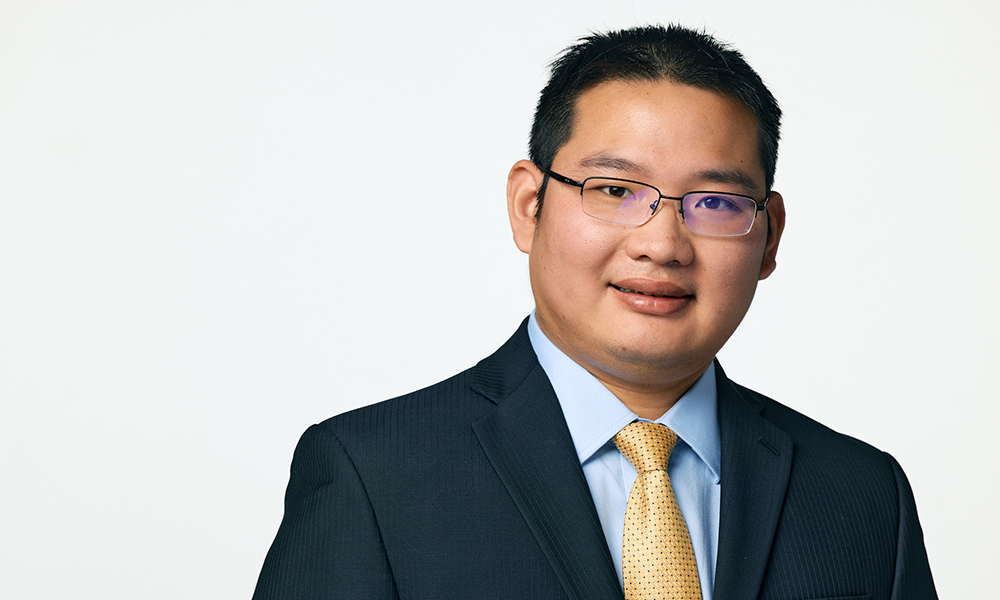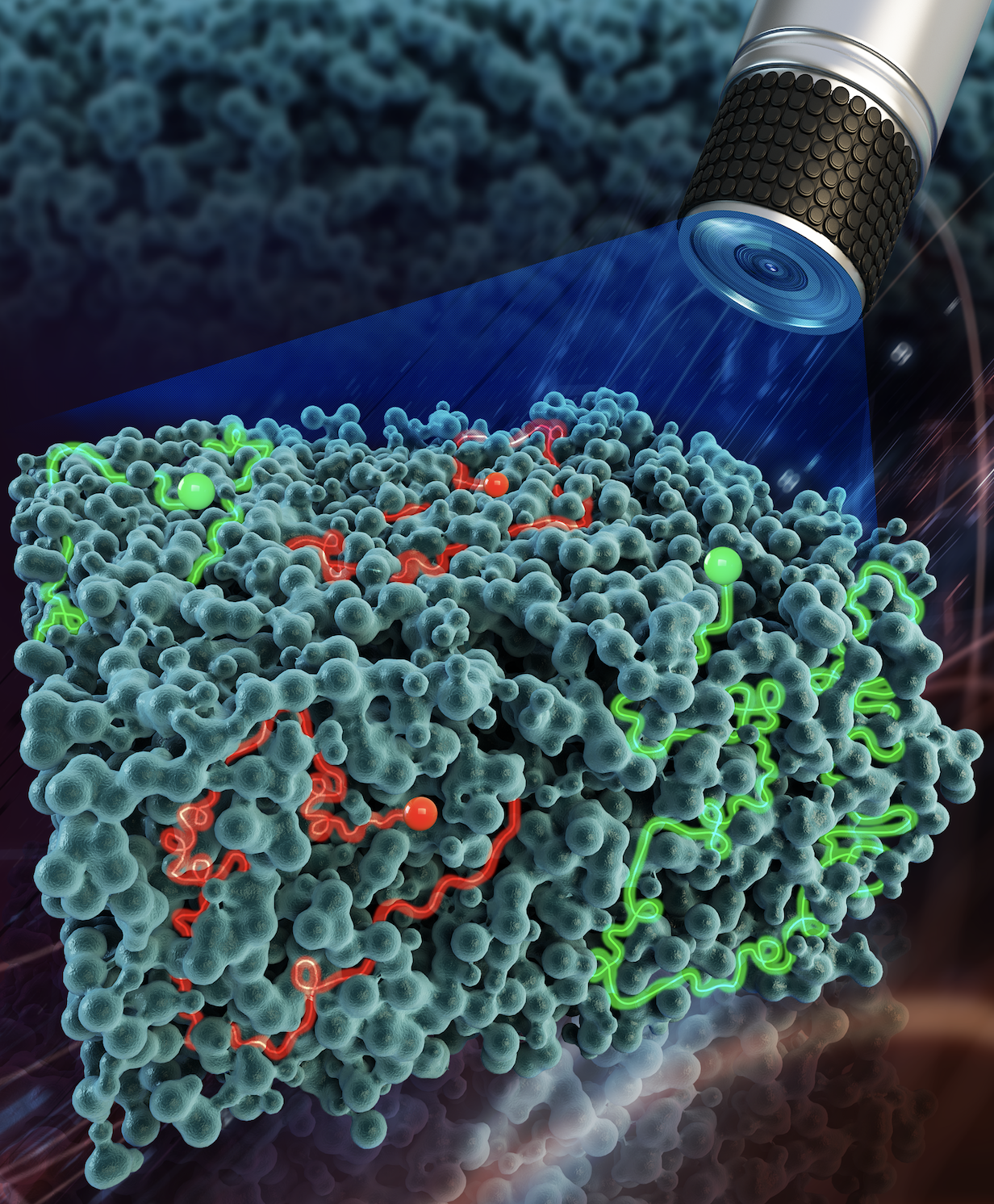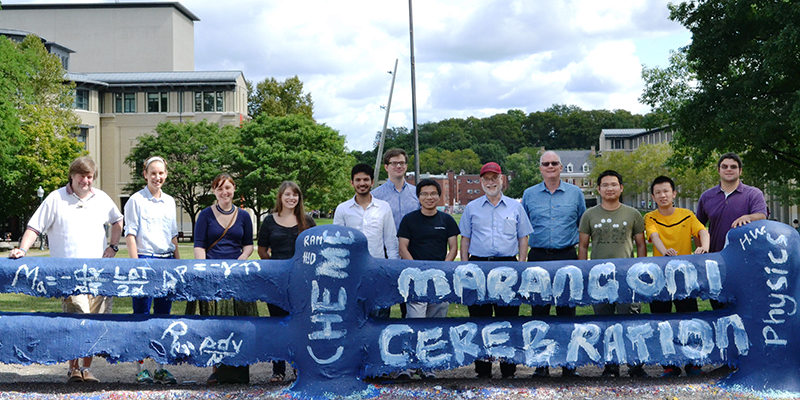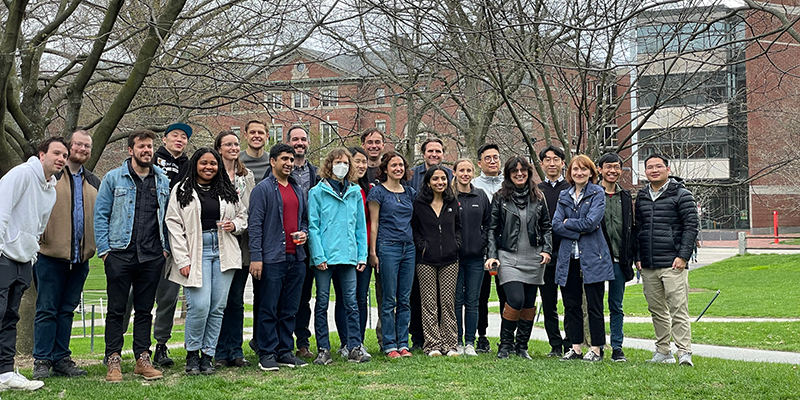Alum spotlight: Haichao Wu
Lauren Smith
Jun 8, 2023

Haichao Wu ('15) aims to become as good a mentor as those who guided him. "I still remember vividly the first time I met my advisors, Bob Tilton, Steve Garoff, and Todd Przybycien. They were talking about a complex research problem, and I didn't know the jargon they were using," Wu recalls. "They were so patient, answering my questions. And because of that, I didn't feel any shame or awkwardness."
Wu entered the Master of Science in Chemical Engineering program to prepare for a job in industry. The unique research component of the program changed his career trajectory: instead of industry jobs, he applied to Ph.D. programs and chose the University of Colorado, Boulder.
This spring, Wu won the 2023 Victor K. LaMer Award for Graduate Research in Colloid and Surface Chemistry. The award recognizes the outstanding Ph.D. dissertation in this field. It was presented to Wu at the American Chemical Society Colloid and Surface Science Symposium, June 4-7, 2023.
Wu credits his passion for research to his advisors through the years. "I was inspired by their mentorship, by how they are able to excite students' passion for research science, and also by their care for grad students and postdocs," he says.

Source: Haichao Wu
Cover illustration of Haichao Wu’s dissertation for Accounts of Chemical Research, Acc. Chem. Res. 2020, 53, 10, 2130–2139
For his dissertation, Wu developed a method to study a single nanoparticle's movement in complex 3D porous media. Existing literature studied mass transport in porous media using single particle tracking only in 2D.
Wu's single particle tracking method also solved the problem of light scattering at the interface of the two different materials that make up porous media: a solid skeleton and a fluid immersed in the skeleton. Light scattering prevents traditional methods from visualizing particle motion deep inside of the porous media.
Additionally, traditional methods are only able to study the ensemble behavior of the nanoparticles. "If we really want to understand the underlying mechanisms, we need to start from one single particle's movement," says Wu.
Wu doesn't stop with the fundamental science. He is also interested in applying the technology he develops to solve industry-related research problems.
The implications are far-reaching. Examples of porous media include separation membranes used to clean water and to sterilize pharmaceuticals. Natural systems like soil are also porous media, through which fertilizers move, as do potentially harmful particles released by industry.
By systematically studying transport in porous media for different processes, particle sizes, hydrodynamic effects, and electrostatic interactions, Wu is able to predict the behavior of nanoparticles in porous media. "Basically, we are connecting the dots from the single pore scale to the macroscopic scale," he explains. "We are elucidating the whole story about nanoparticle transport in porous media."
Wu is currently a postdoctoral scholar working with Professor Joanna Aizenberg in the School of Engineering and Applied Sciences at Harvard University. One of his projects uses data-driven methods to discover new materials. "If I did not have the experience I had at CMU," says Wu, "I wouldn't be thinking about it in this way."
"When I share my CMU experience with other grad students or postdocs, they're amazed by the coursework because it's specially tailored for programming, computer science, and data science," he adds.
In addition to programming skills that enable him to perform his own simulations, Wu says he learned "the ideology to think about using computational methods to help us solve complex research problems."
"Chemical engineering has become such a diverse discipline, able to solve different kinds of problems," says Wu. "Maybe 100 years ago, nobody in the chemical engineering department was thinking about drug delivery, for example, as a problem they could solve. Actually, it is. Drug delivery is related to transport phenomena, a core course of chemical engineering."
Because of a coin toss, Wu almost didn't take those core courses.
When applying to college in his native China, Wu needed to declare a major. He thought he might be interested in chemical engineering or electrical engineering, but he didn't have much time to think about what he would want to do in those fields. So, he decided to flip a coin. It came up for electrical engineering.
After he submitted his application, Wu began to realize his true feelings: he preferred chemical engineering. Fortunately, there were so many students applying for electrical engineering that year that Wu was admitted to chemical engineering.
"In chemical engineering, we think about problems at multiscale. Because of that, we are able to solve various emerging problems," says Wu.


